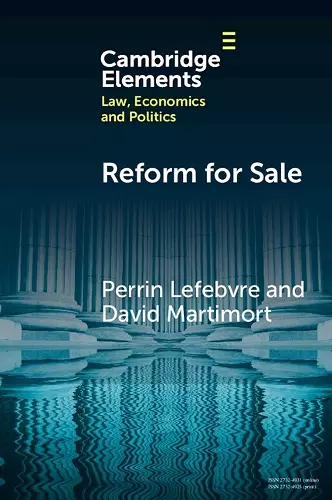Reform for Sale
A Common Agency Model with Moral Hazard Frictions
David Martimort author Perrin Lefebvre author
Format:Paperback
Publisher:Cambridge University Press
Published:2nd Mar '23
Currently unavailable, and unfortunately no date known when it will be back

This Element analyzes how frictions in lobbying impact policy-making, challenging the pluralistic view of government from political science.
This Element focuses on the efforts of interest groups who try to to influence a policy-maker who in turn exerts effort to increase the probability that a reform be implemented. It analyzes linking of the allocative efficiency and redistribution of the aggregate surplus, as both depend on the set of active principals as well as on the group size.Lobbying competition is viewed as a delegated common agency game under moral hazard. Several interest groups try to influence a policy-maker who exerts effort to increase the probability that a reform be implemented. With no restriction on the space of contribution schedules, all equilibria perfectly reflect the principals' preferences over alternatives. As a result, lobbying competition reaches efficiency. Unfortunately, such equilibria require that the policy-maker pays an interest group when the latter is hurt by the reform. When payments remain non-negative, inducing effort requires leaving a moral hazard rent to the decision maker. Contributions schedules no longer reflect the principals' preferences, and the unique equilibrium is inefficient. Free-riding across congruent groups arises and the set of groups active at equilibrium is endogenously derived. Allocative efficiency and redistribution of the aggregate surplus are linked altogether and both depend on the set of active principals, as well as on the group size.
ISBN: 9781009285582
Dimensions: 229mm x 152mm x 5mm
Weight: 140g
75 pages